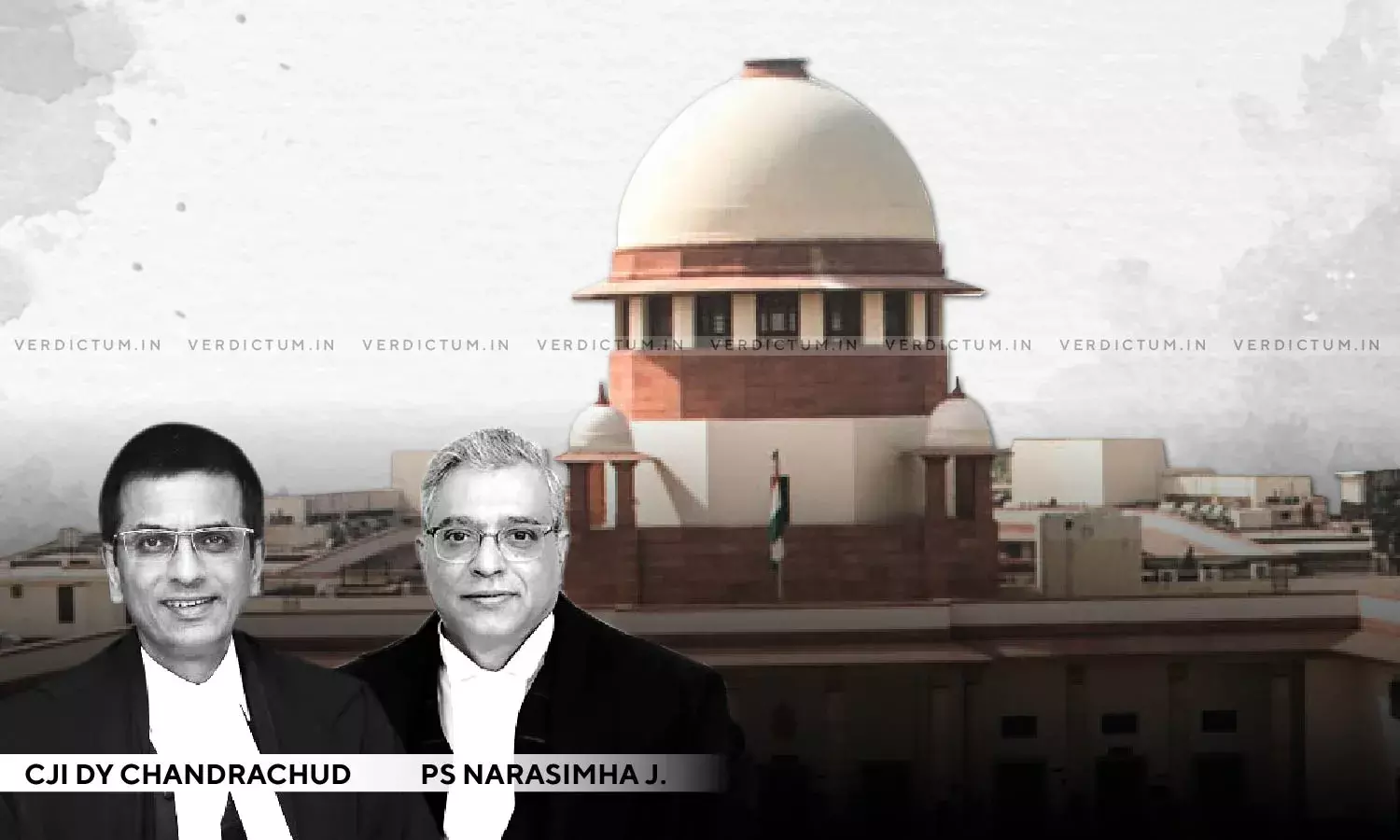SC Adjourns Plea Challenging Execution By Hanging, Asks Petitioner To Suggest Other Scientific Alternatives

The bench of Chief Justice DY Chandrachud and Justice PS Narasimha today adjourned a public interest litigation seeking a painless end for death convicts to May 2, 2023 for the parties to explore the best method available based on today's medical science and technological advancements. The bench asked the Counsel appearing in the matter to take time to explore and gather data available on the subject.
Petitioner Rishi Malhotra, an Advocate appearing as a party in person, took the bench through the detailed order of October 6, 2017 passed by the then Chief Justice Dipak Misra led bench which had observed that "legislature can think of some other mode by which a convict who, in law, has to face the death sentence should die without pain. It has been said for centuries that nothing can be equated with painless death And that is, possibly, the dignity in death." By that order, the assistance of the Attorney General for India was sought to assist the Court in the matter.
The Petitioner submitted that "when a man is hanged, his dignity is lost. Dignity in death is necessary, A convict whose life has to be ended, he should not have to suffer the pain of hanging. Nothing can be equated with dignity in death". The Petitioner gave an example of the process a person goes through. "The slightest error in the drop can result in lingering death which is absolutely cruel", he submitted.
The Petitioner further relied on the 35th Law Commission of 1967 report which suggested that the hanging be replaced by something more humane and the 1987 Law Commission report. He also relied on the 5-judge bench judgement of the Apex Court, which was countered by Justice PS Narasimha saying, that the judgement is about euthanasia.
The Petitioner referred to the jail manual procedure and submitted examples of cases where death row convicts had to be left hanging for two days as they slowly strangulated. He further pointed out that "our own armed forces provided 2 choices- either by being shot or by hanging... and the same is absent in CrPC".
Quoting the example of 36 states in the USA which have abandoned hanging, he said that the "figures are going up". Justice PS Narasimha queried- "how does the Court draw its conclusion... the question of dignity is not under contest. Even the issue of the minimum amount of pain is not in the contest. The question which remains is what science offers. Does it offer legal injections? The judgement says no. In America, it was found lethal injection was not right".
Continuing, the Chief justice queried about finding out what is the best method in science and what scientific knowledge offers to us now.
On the submission that government be directed to adopt the lethal injection method, the Chief Justice said, "we cannot tell the legislature that you adopt this method. But we can suggest that this method is less painful". On the aspect of lethal injection, the CJI said, "some of the evidence which has come on of lethal injection is startling. The person really struggles."
"We can't tell the legislature that you don't choose method A but method B... but if scientific data shows that method A is far less painful then we can declare the other method unconstitutional", the CJI said.
The Chief Justice further said, "On what basis does the law commission say that lethal injection is not a lingering death? There has been great diversions on even what chemical is administered. In the USA there is strong evidence of the serious pain caused due to injection"
Before adjourning the plea, the bench told the petitioner, "When the death sentence is executed in the presence of district magistrates and superintendents, of course, there may be some report submitted by them. Suppose 20 sentences are executed what do these reports say, do they indicate the pain caused to the prisoner?"
The Court further observed that "the burden is on the Union to continuously study and survey", to which Advocate General Venkataramani replied that the centre will respond to it on the next posting.
The Court suggested that it should have better data from India and overseas on what is the impact of death by hanging in terms of pain etc. and to look at the matter from technological and scientific points of view. The Court also suggested the formation of a committee with any 2 NLUs, including eminent people from NLU Delhi and some doctors from AIIMS to have perspectives on alternate methods of executing the death penalty.
Accordingly, the matter was adjourned to May 2, 2023.
The petition filed under Article 32 of the Constitution of India calls into question the constitutional validity of Section 354(5) of the Code of Criminal Procedure, 1973. As per the petition, it does not challenge the imposition of the death penalty but only challenges the method of carrying out the death penalty.
Case Title: Rishi Malhotra v. Union of India

